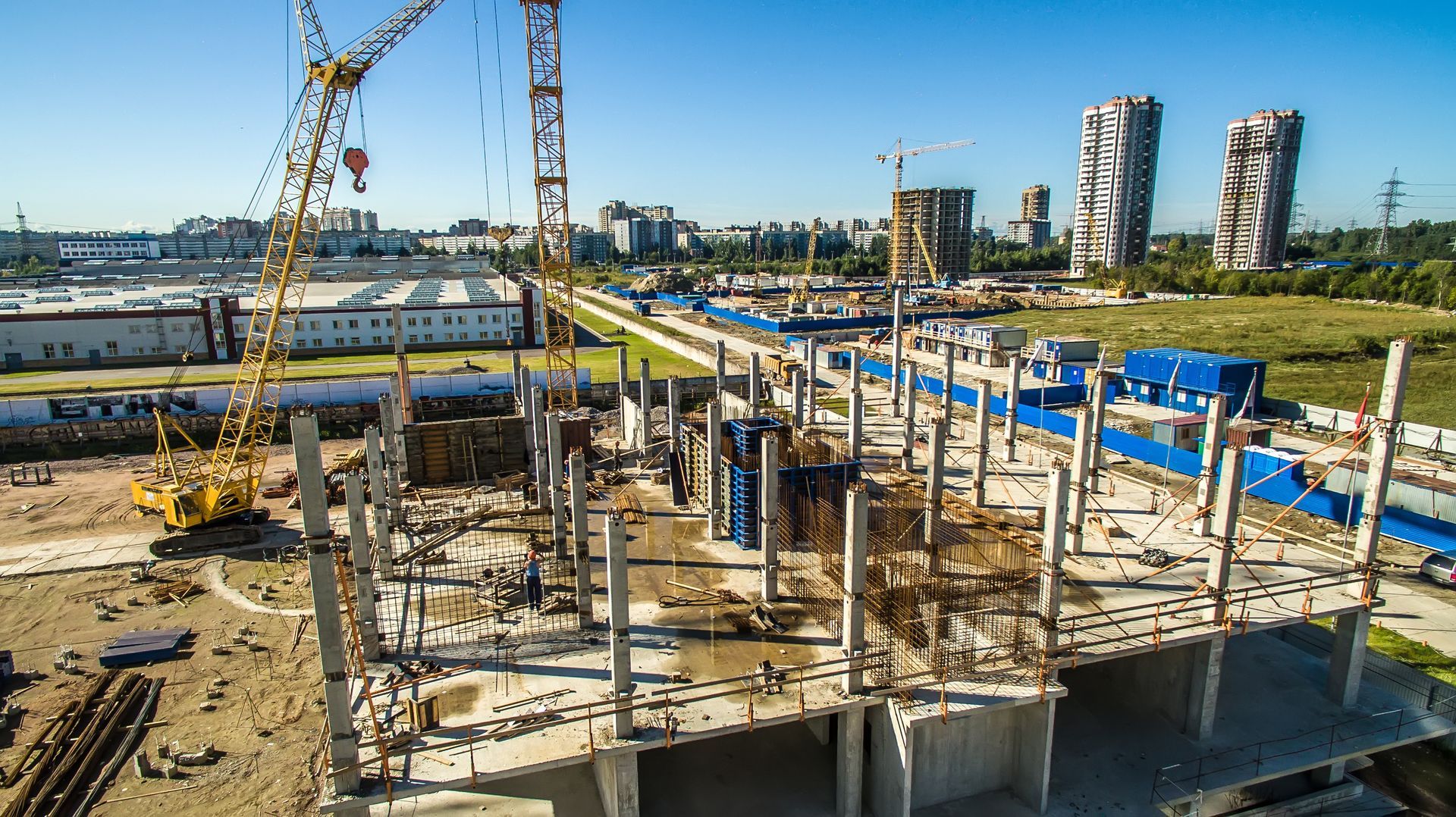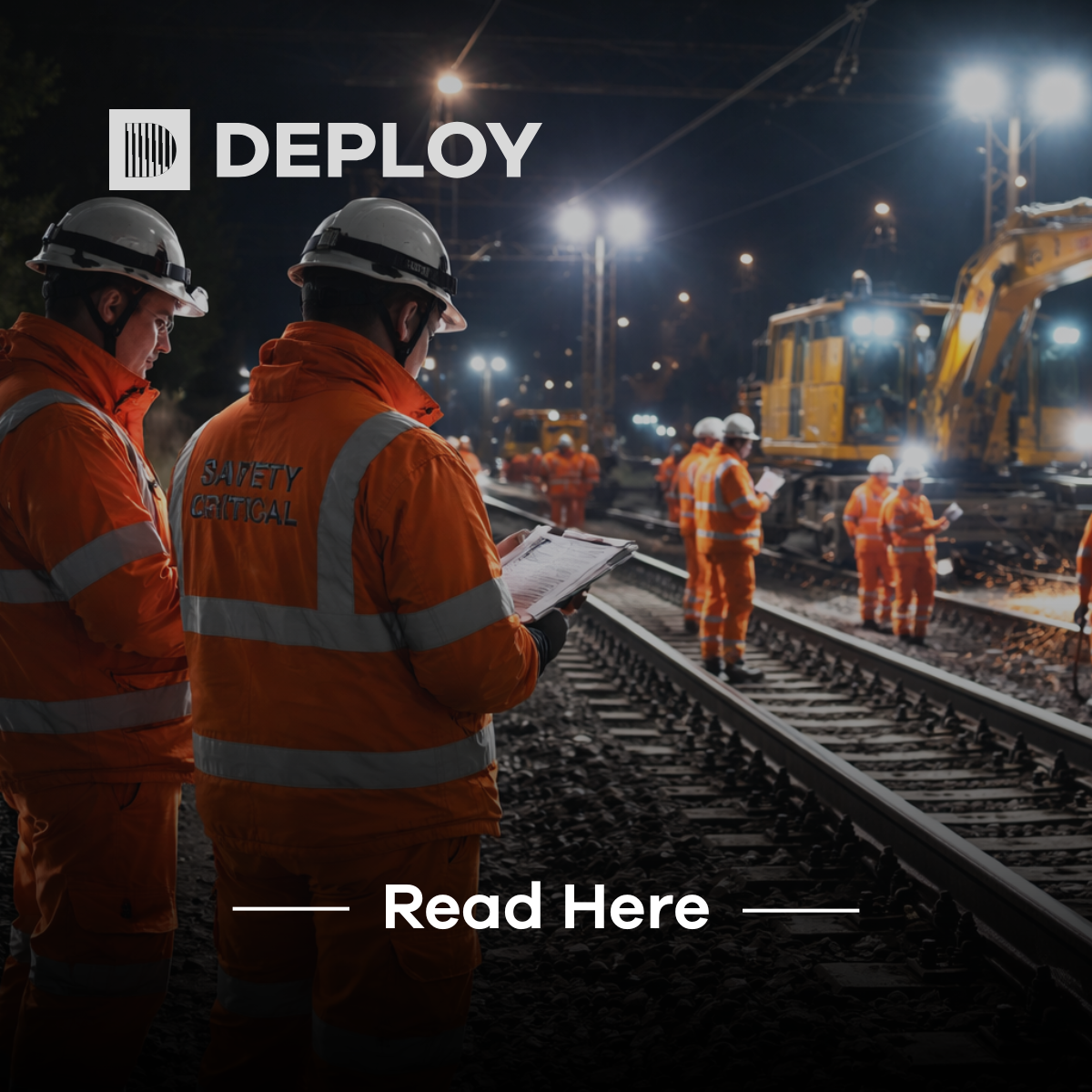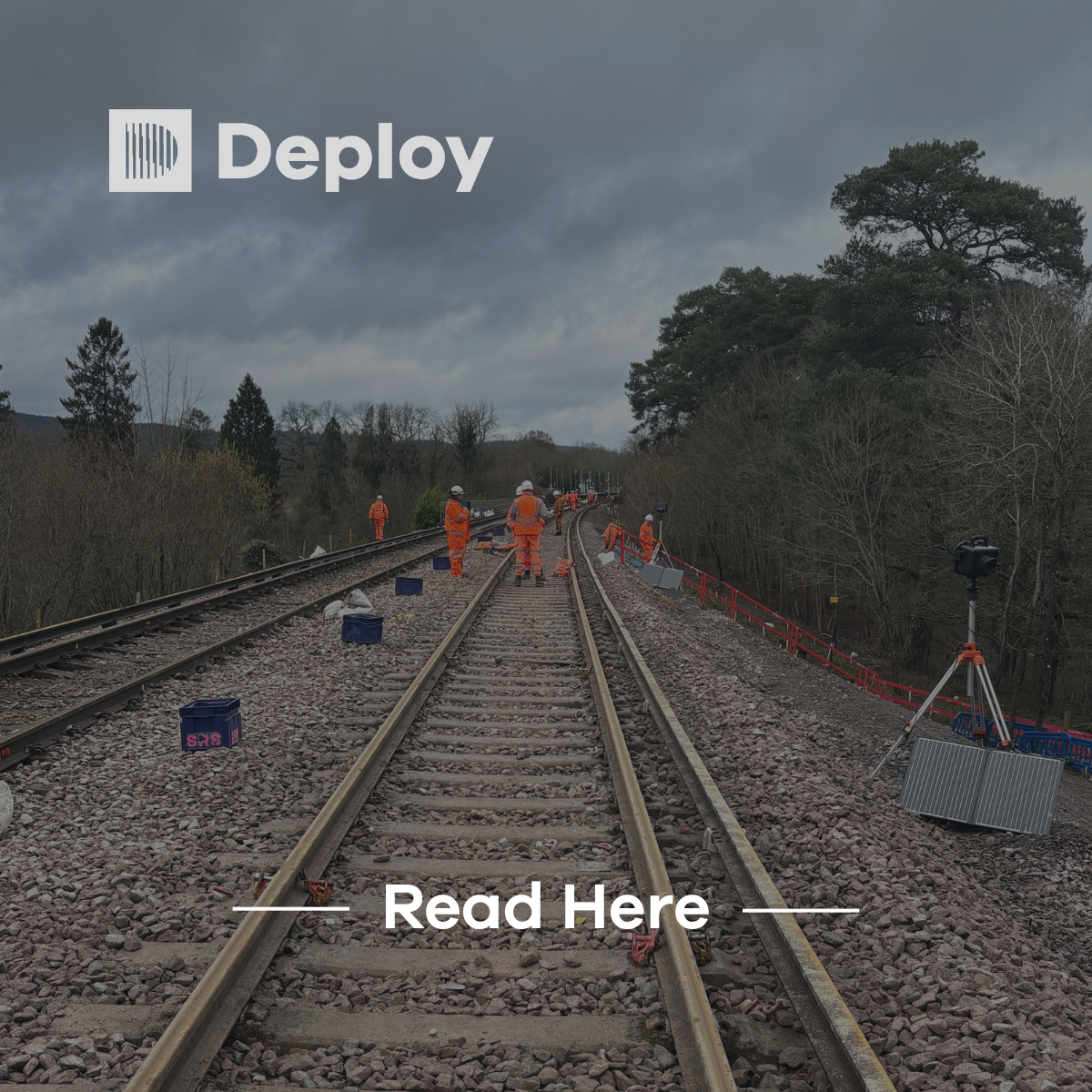Job Search.
Our latest jobs.
Register with Deploy Recruitment Group.
Register.
To register with Deploy you will need to click the ‘REGISTER’ button below which will take you to our registration page.
Specialities.
Deploy Recruitment Group provides quality and safe turnkey solutions across Rail and Infrastructure, Engineering and Manufacturing, Energy and Power, IT and Technology, and more.
Testimonials.
DEPLOY FEED

In infrastructure, success is rarely determined by technical capability alone. Major rail, energy, utilities, and manufacturing projects live or die by collaboration, trust, and consistency over long delivery cycles. That is why culture fit has quietly become one of the most decisive factors in project performance, workforce retention, and long-term commercial outcomes. Hiring managers increasingly ask the same question: Why do technically strong teams still struggle on-site or during delivery? More often than not, the answer sits beneath the surface, in organisational culture. This article explores why culture fit matters in infrastructure recruitment, how it directly impacts project outcomes, and how both employers and candidates can evaluate it strategically. We also explain how Deploy embeds cultural alignment into every hiring decision, ensuring long-term success for clients and lasting careers for candidates. Why is Culture Fit important in the workplace, especially in infrastructure? Infrastructure environments are high-pressure, highly regulated, and deeply interdependent. Projects involve multiple stakeholders, shifting timelines, safety-critical decisions, and complex supply chains. In these conditions, culture isn’t a “nice to have”; it’s an operational requirement. A strong culture fit ensures that teams share common values around safety, accountability, communication, and decision-making. When alignment exists, projects move faster, risks are escalated earlier, and collaboration improves across disciplines. From a hiring perspective, poor culture fit often explains why: High-performing hires exit within the first year Projects suffer from friction between contractors and clients Safety standards are interpreted inconsistently Leadership struggles to maintain morale during programme pressure In contrast, organisations with clearly defined cultures experience higher retention, better productivity, and stronger project continuity, all critical in infrastructure delivery. The Importance of Organisational Culture in Business Success Mission statements or office perks do not define organisational culture. In infrastructure, culture is demonstrated daily through how people behave on site, how leadership responds to risk, and how teams communicate under pressure. A strong infrastructure culture typically prioritises: Safety before speed Accountability over blame Collaboration across disciplines Continuous improvement and learning Respect for operational realities on site When these values are consistently reinforced, businesses benefit from improved delivery outcomes, stronger client relationships, and enhanced employer reputation in a competitive talent market. For hiring managers, this means culture must be treated as a strategic hiring component, not an afterthought. Skills can be trained. Cultural misalignment is far harder and far more expensive to correct. Why Culture Fit Directly Impacts Infrastructure Project Success Infrastructure projects are long-term by nature. Rail upgrades, energy transitions, and civil works often span years, not months. Over that time, teams must navigate change, uncertainty, and evolving stakeholder demands. Culture fit supports project success by: Reducing friction between site teams, engineers, and leadership Improving decision-making speed during critical moments Supporting psychological safety, where risks and issues are raised early Enabling consistent safety behaviours across contractors and suppliers Strengthening resilience during delays, scope changes, or regulatory shifts When culture is misaligned, even technically capable teams can stall. When culture aligns, teams adapt and deliver. How Deploy Strategises Hiring for Culture Fit - For Clients and Candidates At Deploy, culture fit is not subjective or informal. It is a structured, evidence-based part of our recruitment strategy. For clients, we invest time upfront to understand: Leadership style and decision-making approach Site culture versus corporate expectations Safety philosophy and behavioural standards Communication norms across project teams Pace, pressure, and performance expectations This insight allows us to filter candidates not just on capability, but on how they work, how they lead, and how they integrate into existing teams. For candidates, Deploy acts as a career partner, not just a recruiter. We help individuals understand whether an organisation’s culture genuinely aligns with their working style, values, and long-term goals. This dual-sided approach reduces mis-hires, improves retention, and builds trust on both sides of the hiring process. How Employers Can Evaluate Culture Fit During Hiring Hiring managers often ask: How do we assess culture fit without bias? The answer lies in behavioural evidence, not personality assumptions. Effective culture-fit evaluation includes: Asking candidates how they handle safety escalations or site conflicts Exploring how they respond to project pressure or shifting priorities Understanding how they collaborate across disciplines Reviewing how they’ve adapted to organisational change in the past Structured interview questions, consistent evaluation criteria, and real project scenarios provide far more insight than gut instinct. For deeper insight into what hiring managers truly listen for in interviews , this guide offers practical context from the employer’s perspective. How Candidates Can Use Culture Fit to Their Advantage Culture fit is not just something employers evaluate; it’s also a powerful tool for candidates. High-performing professionals increasingly prioritise: Leadership transparency Safety culture credibility Long-term project stability Support for development and progression Candidates who understand their own working style can ask smarter questions, assess alignment more accurately, and avoid costly career missteps. Practical steps include: Asking how safety decisions are made on-site Understanding how teams handle project delays or changes Exploring leadership visibility and communication practices Reviewing how success is measured beyond delivery deadlines Candidates who clearly articulate their values and back them up with experience stand out immediately. Structuring your CV to reflect this alignment is equally important, as outlined here . Final Takeaway: Why Deploy Gets Culture Fit Right Infrastructure recruitment succeeds when people, projects, and purpose align. Deploy’s strength lies in our ability to translate organisational culture into hiring strategy, and to match talent not just to roles, but to environments where they can perform, grow, and stay. For clients, we reduce risk by delivering candidates who integrate seamlessly and contribute from day one.















